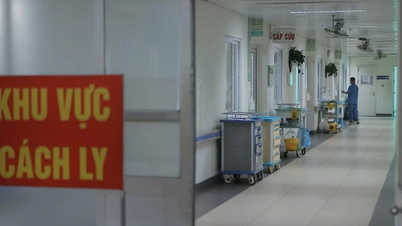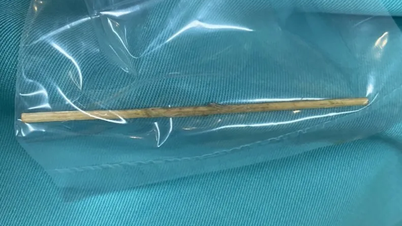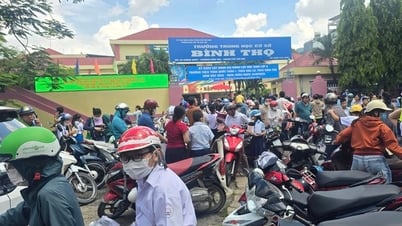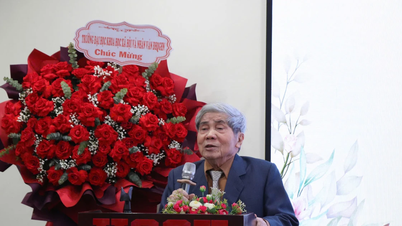On September 23, Dr. Nguyen Thi Kim Nhi, Head of the Department of Neonatology, Children's Hospital 2 (HCMC) said that doctors there had promptly saved a 1-day-old baby girl with Kasabach-Merrit syndrome, which caused severe narrowing of the airway, threatening her life.
Accordingly, taking the medical history, the baby was born at full term, and there were no abnormalities during pregnancy. However, after giving birth at a private hospital, the doctor discovered that the baby had a bruise on his chest, so he was transferred to Children's Hospital 2.
Here, the baby suffered from respiratory failure, a swollen neck, large bruises in the neck-chest area, anemia, and severe thrombocytopenia. The disease then progressed rapidly, the bruises spread to the chin-neck-chest area, severe edema in the neck and face on both sides, accompanied by blood clotting dysfunction, severe anemia requiring blood transfusion.
Initial chest ultrasound results showed diffuse soft tissue thickening of the chest wall and neck, diffuse hyperperfusion. The baby was then given a chest CT scan, which revealed hemangiomas under the tongue, anterior pharyngeal wall, bilateral neck, anterior chest wall-superior mediastinum compressing the surrounding area causing tracheal stenosis.
In addition, based on other clinical test results, the doctor determined that the baby had Kasabach-Merrit syndrome causing severe airway compression, and was supported with CPAP.
Pediatricians said this is a rare and difficult to treat syndrome. This syndrome is characterized by a giant, rapidly growing hemangioma, accompanied by increased consumption of platelets and clotting factors, leading to patients being prone to bleeding and severe anemia.
"According to medical literature, most of these syndromes are treated medically step by step by using high doses of corticosteroids. If there is no improvement, other specific drugs such as vincristine or sirolimus will be added to prevent the growth of blood vessels in the tumor. In the above case, the hospital consulted with internal medicine and agreed to treat the child with corticosteroids and vincristine," said Dr. Nhi.
Currently, after a week of treatment, the baby's hemangioma has decreased in size, no longer compressing the airway, so the respiratory failure has improved, CPAP apnea. At the same time, platelets have gradually increased, there is no blood clotting disorder, no need for blood transfusion. The baby was discharged from the hospital with stable vital signs and regular follow-up visits.
Source


![[Photo] Ho Chi Minh City holds funeral for former President Tran Duc Luong](https://vphoto.vietnam.vn/thumb/1200x675/vietnam/resource/IMAGE/2025/5/24/9c1858ebd3d04170b6cef2e6bcb2019e)

![[Photo] Party and State leaders visit former President Tran Duc Luong](https://vphoto.vietnam.vn/thumb/1200x675/vietnam/resource/IMAGE/2025/5/24/960db9b19102400e8df68d5a6caadcf6)



























































































Comment (0)